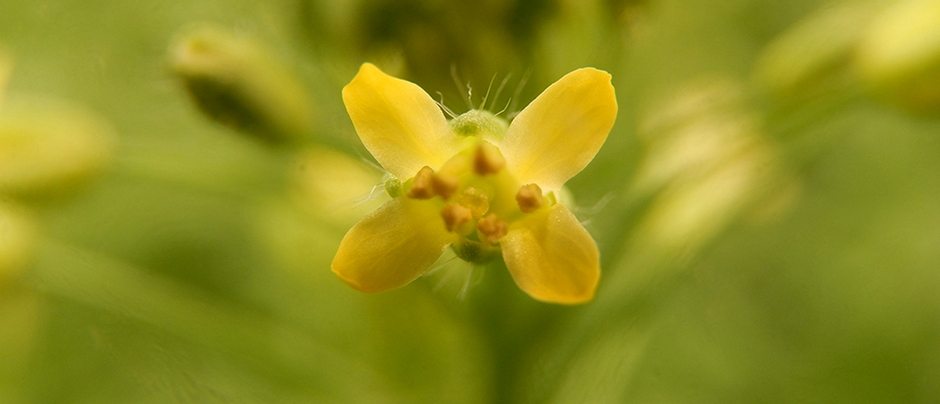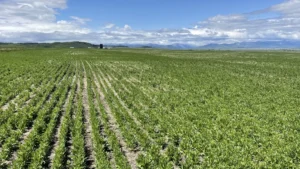The United Kingdom’s Rothamsted Research has been given the OK to go ahead with a field trial of genetically modified camelina plants on the Rothamsted Farm in 2016 and 2017. The trial is part of a research project by Rothamsted scientists.
The trial will test whether GM Camelina sativa plants are able to make significant quantities of omega-3 long chain polyunsaturated fatty acids (LC-PUFAs) and astaxanthin in the seed of the plant under field conditions. Omega-3 LC-PUFAs have been shown to be beneficial for human health and contribute to protection against coronary heart diseases (CHD).
The primary dietary sources of these fatty acids are marine fish either wild stocks or farmed fish (aquaculture). Fish, like humans, do not produce these oils but rather they accumulate them through their diet in the wild or through fishmeal and fish oil in farmed fish. Around 80 percent of all fish oil is consumed by the aquaculture sector and this rapidly-expanding modern industry is seeking new omega-3 LC-PUFAs sources to ensure its production practices remain sustainable and nurture the essential aquatic food web.
Astaxanthin, is a carotenoid pigment that has antioxidant properties and is used as a feed additive in fish farming. It is the pigment that gives salmon its characteristic pink colour. Astaxanthin is found in some marine organisms at the base of the food-web such as algae and krill. Astaxanthin is also synthetically made and subsequently used as feed additive.
One potential approach towards flexible and sustainable supply of omega-3 LC-PUFAs is to engineer a crop plant with the capacity to synthesise these fatty acids and astaxanthin in seeds. Rothamsted scientists will now trial if individual and combined novel traits can be successfully grown in field conditions.
The controlled experiment will be carried out at Rothamsted Research and sowing of Camelina seeds will take place in May this year. The plants will be harvested August/September 2016, and a small amount of seed will be used to analyse the oil content, with all the rest of the seed and plant material will be destroyed according to the consent’s conditions. The GM inspectorate of the Food and Environment Research Agency will be carrying out regular inspections.












